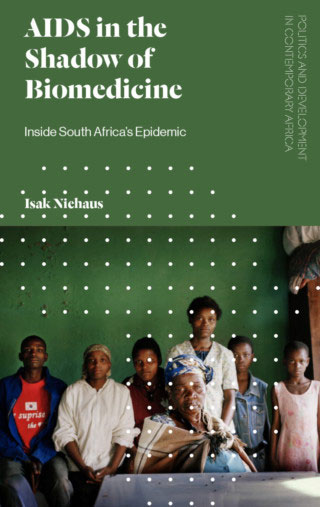Politics and Development in Contemporary Africa
Titles in this series are published together with Zed Books. This series of books seeks to provide accessible but in-depth analysis of key contemporary issues affecting countries across the African continent. Featuring a wealth of empirical material and case study detail, and focusing on a diverse range of subject matter – from conflict to gender, development to the environment – the series aims to give scholars a platform to present original and often provocative arguments.
Series editors
Elliot Green, London School of Economics and Political Science
Jon Schubert, Brunel University
Managing Editor
Stephanie Kitchen
For submission and proposal enquiries, contact Stephanie Kitchen, Managing Editor, sk111@soas.ac.uk
 Ironies of Solidarity: Insurance and Financialization of Kinship in South Africa
Ironies of Solidarity: Insurance and Financialization of Kinship in South Africa
Erik Bähre
Set in one of the world’s most unequal and violent places, this ethnographic study reveals how insurance companies discovered a vast market of predominantly poor African clients. After apartheid ended in 1994, South Africa became a ‘testing ground’ for new insurance products, new marketing techniques and pioneering administrative models with a potentially global market. Drawing on Rorty’s notion of irony for understanding how the contradictions inherent to solidarity affect inequality and conflict as well as drawing on a vast array of case studies, Ironies of Solidarity examines how both Africans enjoy the freedoms that they have gained in financial terms and how the onset of democracy effected the risks faced in everyday life. Bähre examines the ways in which policies are sold and claims are handled, offering a detailed analysis of South Africa’s insurance sector.
ISBN: 9781786998583, 264pp, January 2020, Published for the IAI by Zed Books
 AIDS in the Shadow of Biomedicine: Inside South
Africa's Epidemic
AIDS in the Shadow of Biomedicine: Inside South
Africa's Epidemic
Isak Niehaus
The Bushbuckridge region of South Africa has one of the highest rates of HIV infection in the world.
Having first arrived in the area in the early 1990s, the disease spread rapidly, and by 2008 life
expectancies had fallen by 12 years for men and 14 years for women. Since 2005, public health facilities
have increasingly offered free HAART (highly active antiretroviral therapy) treatment, offering a
modicum of hope, but uptake and adherence to the therapy has been sporadic and uneven.
Drawing on extensive ethnographic research, carried out in Bushbuckridge over the course of 25 years,
Isak Niehaus reveals how the AIDs pandemic has been experienced at the village-level. Most
significantly, he shows how local cultural practices and values have shaped responses to the epidemic.
For example, while local attitudes towards death and misfortune have contributed to the stigma around
AIDs, kinship structures have also facilitated the adoption and care of AIDs orphans. Such practices
challenge us to rethink the role played by culture in understanding and treating sickness, with Niehaus
showing how an appreciation of local beliefs and customs is essential to any effective strategy of AIDs
treatment.
ISBN: 9781786994738, 216pp, December 2018

